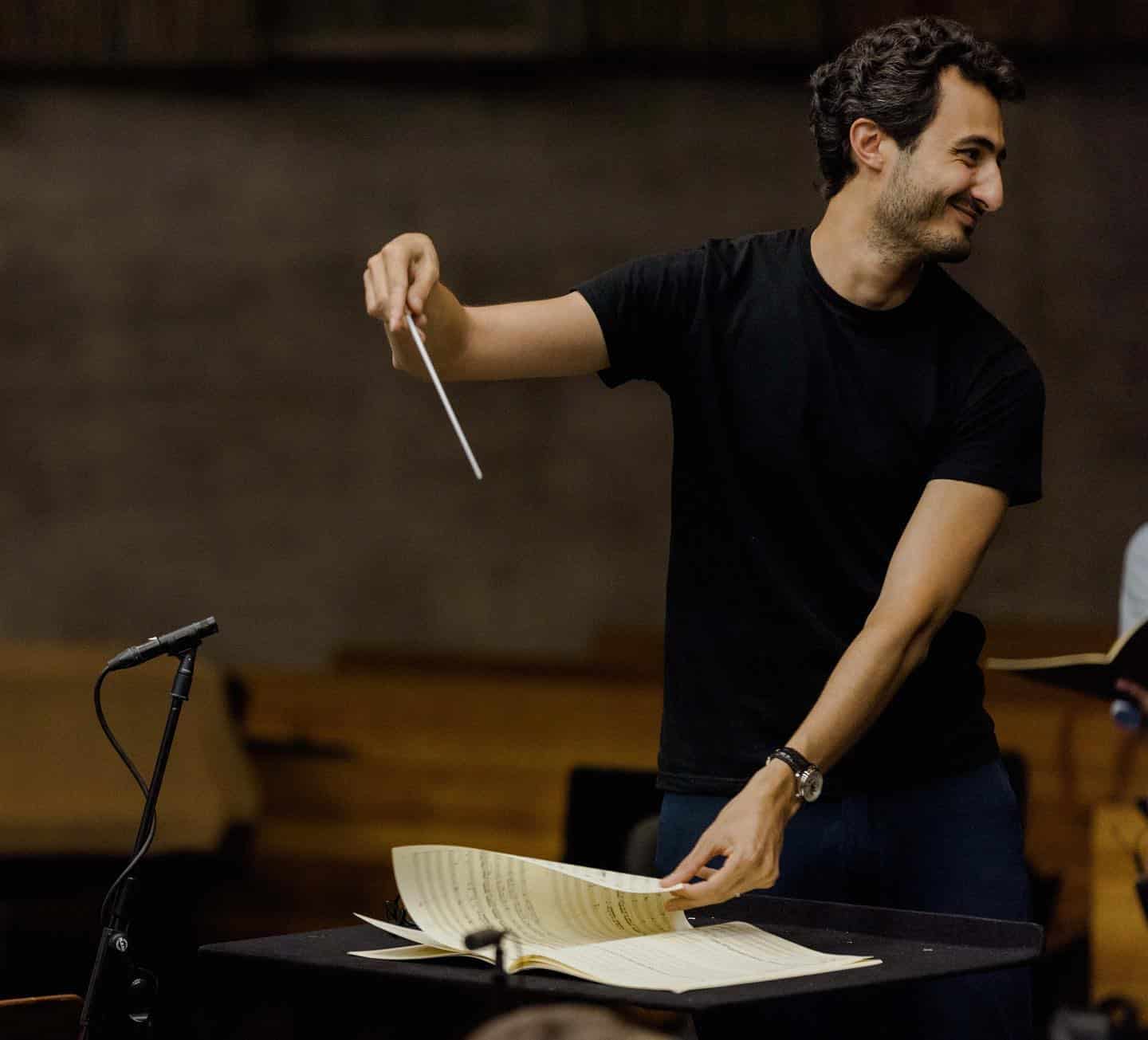The Lion of Early Music: first tribute by a disciple
mainThe outstanding harpsichordist Mahan Esfahani has written a personal tribute to Gustav Leonhardt, whose death was announced today:
*
I had the honour and pleasure of making the acquaintance of Gustav Leonhardt during the last few years of his career and during the first few years of my own. Leonhardt had long been a great source of inspiration through his recordings and his few but valuable writings. I will never forget the experience of finding my first recording of Leonhardt’s at the local public library, a-well worn LP of Cantata 77, ”Du sollt Gott, deinen Herren, Lieben” directed by Leonhardt and made so rich not only by his own contributions but also by the unforgettable singing of Max van Egmond and Paul Esswood. It was my first experience in hearing period instruments, and I remember the confusion and joy I felt while I traced my fingertips over the red and gold record cover.
It was not long after that experience that I came across an old recording of the young Leonhardt (in the early 1950s, I should think) playing Froberger and Frescobaldi solos on the harpsichord in a recital with the legendary countertenor Alfred Deller. And finally, in my student days when I came to seriously understand the harpsichord as a solo instrument, I came to know Leonhardt at his height, his groundbreaking recordings of English virginalist music and Froberger for Telefunken, made on the 1640 Ruckers in Schloss-Ahaus in Westphalia.
And finally, when I was granted the gift of being able to hear him live in recital – allowing us to witness his private conversations with Louis Couperin, with Froberger, J.S. Bach, Georg Boehm, Merula, Frescobaldi – each of those evenings was like a masterclass and a whole year’s worth of lessons for which I will be eternally grateful. For some odd reason, a particular episode that comes to mind was an experience of student days, sitting up the whole night in my bedsit and notating all the articulations, stop changes, and agogics in his recording on the Dom Bedos organ in Sainte-Croix in Bordeaux, then, bleary-eyed, taking to train to a Baroque-style organ to go try them all out.
Many people have gone over the points of Leonhardt’s playing and his musical personality, and there is not much I can contribute to that discussion. But I would like to point out, in homage to him, that any harpsichordist alive – and I think whether they decided to imitate Leonhardt the musician, with varying levels of success, is a moot point – must acknowledge that he sat, in spirit if not in person, in all of our studios while we practised. His presence is so overwhelming and of such influence that we cannot deny how it totally changed our view of the harpsichord.
As a hero to harpsichordists, he showed us that the instrument could speak directly and with total sincerity without apologising for any of its falsely-perceived ‘faults’ or ‘shortcomings.’ He never resorted to talking down. He never pandered. Like the musician, the man was a figure of such grace and solemnity, and when the wit and humour came out it was so skilfully achieved that I still have memories of his wry smiles over lunch or an ironic glance behind his glasses as he played the last low octave in Forqueray’s ‘La Buisson.’ I’ll never forget him running backstage after one of my own modest recitals, in a state of great despair, wondering why I had modified the last chord of Scarlatti’s K. 69 to include an A-natural rather than an A-flat! And perhaps on a more sombre note, when I heard him in his last British recital, I recall the ‘Allemande on the Death of Charles XI of Sweden’ by Christian Ritter – whose eyes that evening were not moist? It was a eulogy to his own life, to his own career. Death in the most joyous and beautiful form was there in the playing from the beginning.
As I am sitting writing this, I have in my hands a few of the letters between Leonhardt and myself – they are mostly effusive and overdone lists of neurotic questions and artistic storms-in-teacups (my letters) and brief, polite, and very much to-the-point responses (his letters). In my last one, I wrote him a quote from Tolstoy’s ‘Resurrection,’ in which the protagonist comes to realise that the world’s approval of his actions was impossible to follow if one had any worthwhile sense of personal morality and values. I brought this up to Leonhardt as a description of the conflicts faced by a young musician who wanted an audience and yet wanted to maintain artistic integrity. He wrote back: ‘I never mind these things and neither should you. Go into the world and be a musician, and you will learn what you need to. If I had even one person listening, or none at all, I would have not changed any of my decisions.’







Thank you, Mahan, for this wonderful tribute.
A wonderful tribute to an extraordinary musician. I wish I could have known him personally as well!
Beautiful Mahan.
Thank you Mahan for your very moving tribute.
Gustav Leonhardt was a formidable musician and will be sorely missed by us all.
He has been an inspiration to me and all my colleagues, all of our lives.
Your tribute means so very much to those of us who have been inspired by Leonhardt’s presence for decades. Your reference to Tolstoy’s Resurrection in your letter to him and his written response are invaluable.
Thank you.